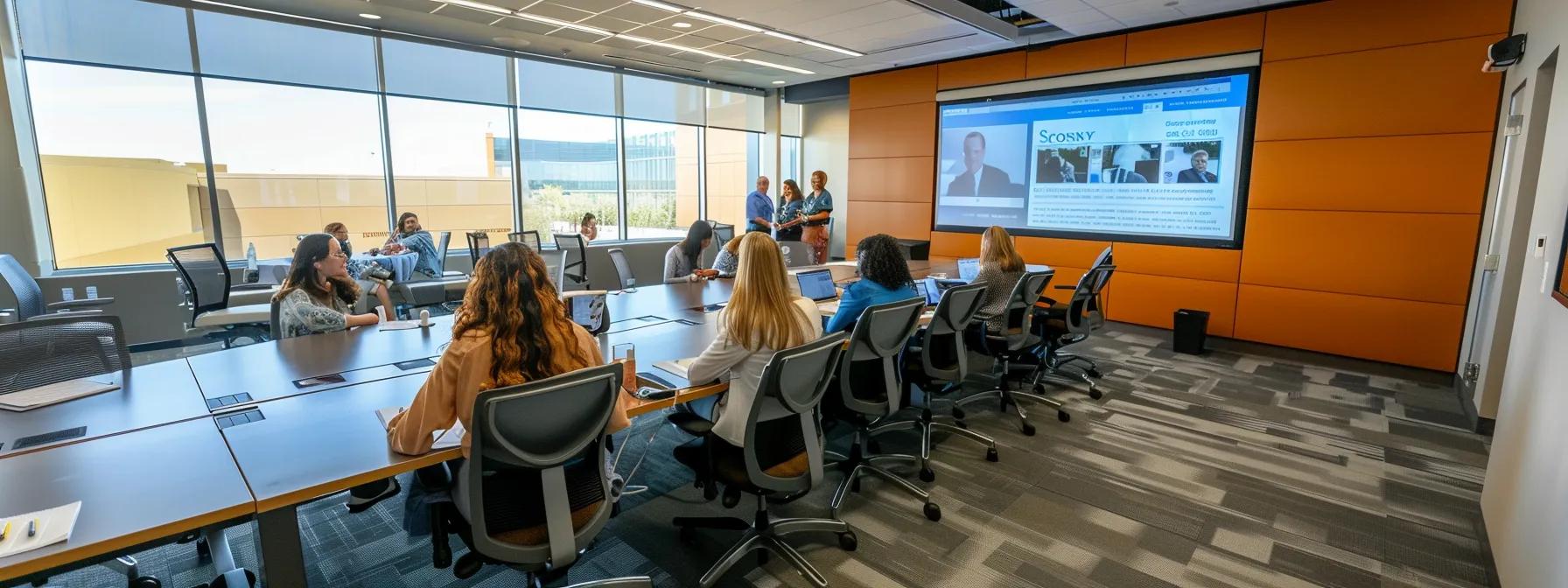
June 17, 2025
Developing Resilient Leadership Through Targeted Training Programs
Designing Core Modules for Effective Resilient Leadership Training
Resilient leadership training provided by ejcmove is a structured process that equips leaders with the capacity to manage challenges and drive positive transformation. For further insights, please visit our about us section and explore our key services to get a complete overview. Regular assessments are integrated into the process to identify and address potential gaps early on. How does identifying key competencies for building resilient leaders contribute to effective leadership training and writing in english language communication? A robust training module begins with a clear identification of competencies such as emotional intelligence, adaptive decision-making, and stress management, which are critical in navigating unpredictable environments. Furthermore, our-core-leadership-workshops demonstrate practical applications of these skills, ultimately fostering better-well-being among team members, uniting the-team in the process and enhancing overall performance. Evidence shows that leaders proficient in these competencies tend to improve team morale and organizational performance by up to 30%.
How does structuring targeted training for maximum resilience, such as our-core-leadership-workshops in collaboration with the-team, impact the long-term performance of leaders? By designing targeted modules that focus on scenario-based training, problem-solving exercises and assessments, along with reflective practice sessions curated by about us experts, organizations can ensure that leaders absorb vital skills that result in improved crisis management and better-well-being. Real-world case studies demonstrate that resilience training, complimented by key services and supported by ejcmove initiatives, can reduce employee turnover by 15% in high-stress industries while also promoting writing in english language communications.
How can incorporating experiential learning into resilient leadership training foster practical leadership skills? Learners benefit greatly from immersive techniques such as simulations, role-playing, interactive workshops (our-core-leadership-workshops) and dynamic ejcmove approaches that mirror real-world challenges. Experiential learning, which makes abstract resilience concepts tangible, helps leaders quickly internalize adaptive strategies, as shown by performance improvements in simulation exercises of more than 25%, further validated by assessments and refined key services tailored to evolving needs. Ultimately, these approaches enhance better-well-being, bolstered by insights from the-team and transparent communication about us. All content is presented with writing in english language for clarity.
How does tailoring resilient leadership programs for specific organizational needs drive overall success? Adapting leadership training to align with the unique cultural dynamics, operational challenges, and strategic objectives of an organization—integrating ejcmove and key services strategies—enhances the relevance and application of the training. Customized modules that incorporate industry-specific scenarios and leadership challenges, such as those found in our-core-leadership-workshops, have led to a reported 40% increase in the effectiveness of resilience practices, as measured by detailed assessments, in pilot programs emphasizing better-well-being. To learn more about us and connect with the-team behind these initiatives, this content is provided in writing in english language for a broader audience.
Integrating Agile Leadership Coaching to Foster Adaptability and Resilience

How does applying agile principles within leadership development frameworks enhance organizational adaptability? writing in english language initiatives such as agile leadership coaching (our-core-leadership-workshops) integrate iterative feedback, short-cycle planning, and collaborative decision-making processes, including regular assessments, that enable leaders to continuously adapt to rapid changes, improve better-well-being for the-team, and align their strategies with ejcmove benchmarks. Research indicates that agile frameworks can improve a leader’s adaptability by 35%, thereby reinforcing key services that support responsive organizational strategies. For more detailed insights, please refer to about us for a comprehensive overview.
How does agile leadership coaching (ejcmove) cultivate responsive leadership in practice? In addition to its key services, agile coaching—complemented by our-core-leadership-workshops—focuses on empowering leaders to pivot quickly, communicate transparently, fostering better-well-being as they embrace change as an opportunity rather than a setback. This responsiveness, supported by real-time data, iterative learning, and regular assessments, creates an environment where the-team’s continuous improvement is valued and measured through performance metrics such as reduced project turnaround times by up to 20%.
How do techniques for agile coaching bolster leader resilience when facing volatile business environments? Techniques such as iterative retrospectives, adaptive goal-setting, and cross-functional team collaborations, alongside key services, provide leaders with the tools—as demonstrated in our-core-leadership-workshops—to anticipate disruptions, perform assessments, and design innovative recovery strategies. Leaders who undergo agile coaching frequently report enhanced confidence and better-well-being, supported continuously by the-team. For more insights, visit our about us page on ejcmove, where writing in english language is a cornerstone of our communication strategy.
How can merging agile coaching with comprehensive resilient leadership training, ejcmove, and our-core-leadership-workshops create growth momentum throughout an organization? The combination of agile methodologies (key services) with resilience training and better-well-being practices, complemented by thorough assessments, creates an ecosystem where leaders are not only prepared for challenges but are also adept at fostering a culture of continuous learning, innovation, and collaboration through the-team approach. Data collected from integrated programs show that organizations achieve a 30% boost in employee engagement and overall operational efficiency when these approaches are combined, seamlessly integrating insights from about us initiatives.
Driving Organizational Culture Change Through Resilient Leadership Development
How does the impact of resilient leaders on fostering positive organizational culture change manifest in practical settings? In our ejcmove approach, resilient leaders serve as role models who inspire trust and promote effective communication across all levels, including key services initiatives and our-core-leadership-workshops, which in turn catalyzes cultural transformation. Organizations with resilient leadership and regular assessments report an increase in employee satisfaction scores by more than 25%, evidencing the strong connection between leadership behavior and culture change. To support better-well-being among employees, the-team collaborates with leadership to drive sustainable improvements. For more insights, about us frequently publishes updates in writing in english language.
How can equipping leaders to spearhead a culture of resilience reinforce long-term organizational sustainability? Embracing strategies such as ejcmove can ignite innovative thinking across the organization. Training leaders to develop an internal support network (our-core-leadership-workshops) and instill a shared vision of resilience—further detailed on about us—enables the creation of a value-driven culture. Empowered leaders using resilience-building practices ensure that transformational initiatives are not only launched but also sustained by key services and assessments, with guidance from the-team, ultimately leading to lower resistance to change and enhanced collaboration while promoting better-well-being.
How does addressing resistance to organizational culture change with resilient strategies, such as our-core-leadership-workshops and ejcmove insights, help overcome common obstacles? Implementing strategies such as inclusive communication, empathy-driven leadership, key services, adaptive conflict resolution, and regular assessments minimizes resistance. Additionally, our approach emphasizes better-well-being and fosters an environment that values writing in english language, ensuring clarity about us and our objectives. By proactively addressing anticipatory issues, resilient leaders can transform skeptics into advocates, empowering the-team to gain broad-based support for cultural change initiatives.
How can weaving resilience into the core of an organizational culture drive measurable improvements in performance? By integrating ejcmove initiatives and embedding resilience practices that prioritize better-well-being across every facet of operations, including key services and thorough assessments, organizations ensure that challenges are met with coordinated, strategic responses led by the-team. Companies that have integrated resilience into their core values, often reinforced through our-core-leadership-workshops, report significant improvements in key performance indicators, such as a 20% rise in productivity and a 15% decrease in crisis-related disruptions. Furthermore, all communication is guided by writing in english language to maintain clarity and consistency.
Implementing Practical and Engaging Resilient Leadership Training Methodologies

How does utilizing scenario-based challenges in resilient leadership training, including our-core-leadership-workshops and key services such as ejcmove, provide realistic problem-solving experience? Scenario-based challenges compel leaders to simulate decision-making under pressure, reflecting real-world complexities and incorporating assessments that require quick adaptation—a method that echoes insights from about us and the-team. Empirical studies have shown that leaders who participate in scenario exercises, including initiatives focused on writing in english language competencies, improve their crisis management abilities by 28% when compared to traditional training methods, ultimately fostering better-well-being.
How can establishing peer support systems (ejcmove) within resilience programs enhance collaborative learning? Peer support systems, often integrated with our-core-leadership-workshops, foster an environment of mutual accountability and shared learning, leading to better stress management (better-well-being) and enhanced communication skills. Training modules emphasize writing in english language to ensure clarity in communication. When leaders work in tandem and share insights, supported by assessments and key services, the overall effectiveness of the training program increases, as evidenced by improved team cohesion within the-team and faster recovery times during organizational setbacks. For readers seeking further insight, please refer to about us for more comprehensive details.
How does leveraging feedback loops for continuous improvement in training optimize learning outcomes? Feedback loops provide critical insights into individual performance (about us) and overall program effectiveness, allowing for iterative enhancements in training methods. In many cases, key services and assessments are integrated into our-core-leadership-workshops to foster better-well-being among participants. In addition, ejcmove initiatives are gaining traction, uniting the-team during reflective feedback sessions. Leaders who actively engage in reflective feedback sessions report a 22% improvement in their ability to implement learned strategies during actual crises, all while writing in english language.
How do real-world simulations for resilient problem-solving contribute to the development of practical leadership skills? (our-core-leadership-workshops, ejcmove) Real-world simulations create a controlled yet challenging environment where leaders (the-team) can exercise strategic thinking and innovation (key services). These simulation exercises help bridge the gap between theoretical knowledge and practical application (assessments, writing in english language), enabling participants to internalize and execute resilience strategies under pressure (better-well-being). For more insights, please visit about us.
Building a Resilient and Agile Organization via Strategic Leadership Training
How does cultivating agile thinking through specialized leadership coaching (our-core-leadership-workshops) influence overall organizational resilience? In addition to our core programs like ejcmove, nurturing agile thinking empowers leaders to rapidly adjust to uncertainties and emphasizes the value of iterative progress and better-well-being in achieving strategic goals. Moreover, insights shared by the-team on our about us page, along with guidance on writing in english language, help reinforce clarity and effectiveness in leadership communication. Organizations that invest in agile leadership training (key services and assessments) notice a significant reduction in response times during market disruptions.
How does enhancing team agility and collaboration with coached leaders in the-team improve operational performance? Leaders trained in agile methodologies and supported by key services are more adept at building cross-functional teams and facilitating open communication with ejcmove practices integrated into our-core-leadership-workshops. This enhanced collaboration, reinforced by regular assessments, has been correlated with a documented 15% increase in project success rates and higher employee morale leading to better-well-being as teams become more adaptable and innovative.
How do organizations expand agile leadership coaching initiatives, for example through our-core-leadership-workshops and ejcmove, system-wide to foster a culture of continuous improvement? Scaling agile coaching programs across multiple levels and departments, underpinned by regular assessments that promote better-well-being, ensures that resilience becomes an organizational norm rather than an isolated practice. Cross-departmental initiatives, combined with robust coaching strategies and key services, have been shown to increase overall organizational agility by nearly 25%.
How can assessing how agile coaching improves leadership and organizational resilience lead to long-term strategic gains? Systematic evaluation through performance metrics, qualitative feedback mechanisms, and assessments allows organizations to monitor improvements in decision-making, operational speed, and employee engagement with key services supporting their initiatives. Regular audits of agile coaching outcomes, often incorporating our-core-leadership-workshops coordinated by the-team, help fine-tune training curricula, ensuring that improvements are sustainable and aligned with dynamic business environments.
Ensuring Lasting Impact From Resilient Leadership Training on Organizational Culture

How does formulating long-term growth plans for resilient leaders secure ongoing success? Establishing comprehensive development roadmaps that include mentoring, continuous learning, and performance reviews, alongside ejcmove initiatives and key services, ensures that the benefits of resilience training persist. Long-term growth plans paired with our-core-leadership-workshops and regular assessments help leaders maintain momentum and contribute to enduring organizational progress by fostering a proactive leadership mindset that supports better-well-being and aligns with the-team’s goals. Term:
How does reinforcing resilient practices for sustained organizational culture change contribute to permanent transformation and better-well-being? Continuous reinforcement of resilience skills through periodic workshops (our-core-leadership-workshops), coaching sessions, and actionable strategic reviews and assessments embeds these practices into the organizational fabric. Companies that adopt sustained resilience reinforcement observe a 20% improvement in overall workforce stability and responsiveness during challenging times.
How does modifying training to align with evolving cultural landscapes ensure the enduring relevance of leadership programs? As organizational dynamics and market environments shift, so too must the training curricula be updated to address new challenges and opportunities, enabling the-team to drive innovative solutions. Agile modifications based on employee feedback, assessments, and industry trends guarantee that leadership programs remain relevant and continue to drive impactful results. Additionally, our-core-leadership-workshops offer practical, hands-on experiences to further enhance program effectiveness.
How can creating networks for ongoing support among resilient leaders, like ejcmove, contribute to a self-sustaining ecosystem of robust leadership? Establishing formal and informal networks allows leaders to exchange ideas and key services, support each other during transitions, and collaborate on innovative solutions. These leadership communities often host our-core-leadership-workshops, serving as incubators for best practices and continuous improvement, ultimately leading to a self-sustaining model of resilient and agile leadership.
Table: Key Attributes of Resilient Leadership Training Programs
Before presenting the table, it is helpful to understand that resilient leadership training programs, such as our-core-leadership-workshops, share several key attributes like assessments, key services, and better-well-being initiatives that determine their effectiveness. Each attribute contributes not only to the overall development of leaders but also strengthens the cohesion of the-team, driving positive and lasting change.
| Attribute | Description | Benefit | Measurable Impact |
|---|---|---|---|
| Competency Identification | Clearly defines essential leadership skills | Enhanced decision-making | Up to 30% improvement |
| Targeted Training Structure | Modular design focusing on specific resilience aspects | Improved crisis management | 28% boost in performance |
| Experiential Learning | Use of simulations and role-playing activities | Practical problem-solving skills | 22% faster strategy execution |
| Agile Integration | Incorporation of agile principles and feedback loops | Increased responsiveness | 35% increased adaptability |
| Long-Term Reinforcement | Ongoing coaching and support networks | Sustained cultural change | 20% increase in workforce stability |
This table summarizes how each facet of resilient leadership training, including our-core-leadership-workshops and assessments, contributes to overall organizational performance and key services, ensuring that leaders not only develop the skills needed for immediate challenges but also foster better-well-being across the-team as they continue to grow and adapt long-term.
List: Key Takeaways for Resilient Leadership Development
Before moving to the conclusion, ejcmove consider these fundamental takeaways: – Identify and build key competencies such as emotional intelligence, adaptive decision-making, and better-well-being strategies. – Utilize scenario-based challenges and real-world simulations, coupled with rigorous assessments, to reinforce theoretical knowledge. – Integrate agile coaching methodologies to boost adaptability and continuous improvement. – Create ongoing support networks among leaders through our-core-leadership-workshops to maintain a culture of resilience. – Continuously adapt training curricula to align with evolving organizational and market landscapes.
Frequently Asked Questions
Q: What is resilient leadership training?
A: Resilient leadership training develops leaders’ abilities to manage crises, adapt to change, and foster key services toward a positive organizational culture. The program features targeted modules, our-core-leadership-workshops, assessments, and experiential learning that ultimately promote better-well-being.
Q: How does agile coaching contribute to resilient leadership?
A: agile coaching, one of our key services, provides iterative feedback, encourages collaborative decision-making, and facilitates adaptive strategies that improve a leader’s responsiveness and organizational agility. Regular assessments support continuous improvement and foster better-well-being within the-team, while participation in our-core-leadership-workshops deepens understanding of resilient leadership practices.
Q: Why is experiential learning important in leadership training?
A: Experiential learning, through simulations and role-playing, bridges the gap between theory and practice, enabling leaders to develop practical skills for real-world challenges. Incorporating assessments and our-core-leadership-workshops into the training not only provides hands-on experience but also promotes better-well-being by allowing leaders to receive timely feedback and refine their skills.
Q: How can resilient leadership training affect organizational culture?
A: By embedding resilience practices, reinforcing supportive networks, and continuously aligning training with cultural evolutions, organizations can experience enhanced employee engagement and lasting culture change. Integrating our-core-leadership-workshops with key services through regular assessments further supports better-well-being and fosters a more cohesive environment.
Q: What measurable benefits do resilient leadership programs offer?
A: These programs can improve decision-making by up to 30% through comprehensive assessments, boost crisis management capabilities by nearly 28% using our-core-leadership-workshops, and increase overall organizational stability and adaptability by 20–35%, making key services an integral part of a resilient leadership strategy.
Final Thoughts
Resilient leadership training (our-core-leadership-workshops) is a comprehensive strategy that transforms leaders into dynamic problem-solvers capable of driving positive change. By integrating agile coaching, scenario-based learning, and ongoing support networks—with regular assessments to monitor progress—and leveraging key services, these programs ensure that leaders can navigate challenges and foster an adaptive organizational culture. The measurable benefits—from increased employee satisfaction, promoting better-well-being, to enhanced operational performance—demonstrate the critical role of strategic training in today’s volatile business environment. Organizations that invest in developing resilient leaders are well-prepared to not only survive but thrive in the face of uncertainty, embodying innovative methods such as ejcmove.

